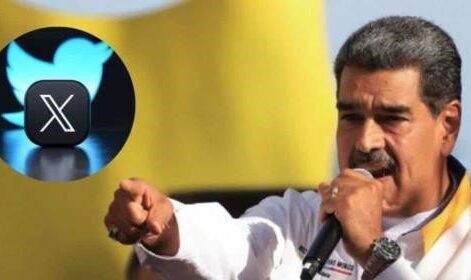BTN News: Eleven days have passed since Venezuela blocked access to the social media platform X, formerly known as Twitter, and the situation remains unchanged. Users in the country still cannot access the platform without resorting to Virtual Private Networks (VPNs), a tool that has become increasingly popular as a workaround for the state-imposed restrictions. The blackout comes in the wake of a suspension order from President Nicolás Maduro, who initially cited concerns about the platform’s alleged role in “sowing violence” within the country. However, despite the prolonged ban, neither Maduro nor other government officials have provided further clarification or updates on the matter, leaving the Venezuelan public in a state of uncertainty.
This suspension, originally announced as a temporary measure, was supposed to last for 10 days. Yet, the deadline has come and gone, and the platform remains inaccessible. Even during his recent public appearances, including his weekly television program, Maduro refrained from discussing the ongoing block, despite repeatedly mentioning Elon Musk, the owner of X. The Venezuelan president accused Musk of promoting fascism and violence in the country, declaring, “Out with Elon Musk and out with X from Latin America.” Maduro’s rhetoric seemed more focused on vilifying the tech mogul rather than addressing the specific reasons for the continued suspension of the platform.
In early August, Maduro demanded that the U.S.-based company submit unspecified documents and wait for the National Telecommunications Commission (Conatel) to issue a “definitive administrative measure.” However, as of now, the details of this measure remain unclear. Meanwhile, state institutions, including the Supreme Court, the National Assembly, and the National Electoral Council, have ceased using X as their communication platform, likely due to the ongoing political crisis following the disputed presidential elections on July 28, where Maduro was controversially declared the winner.
As the Venezuelan government moves away from X, key officials and pro-government voices have migrated to other social media platforms such as Telegram and Instagram. In contrast, opposition leaders and non-governmental organizations continue to use X as their primary tool for disseminating information and rallying support. The digital landscape in Venezuela is increasingly polarized, with each side gravitating towards different platforms to amplify their messages.
The blockade has also sparked a wave of instructional content across social media, particularly from opposition groups, teaching citizens how to install and use VPNs to bypass the restrictions. This trend echoes the broader efforts of many digital media outlets that have been promoting the use of anti-censorship tools for years, especially as government-led internet censorship has become more prevalent.
The ongoing suspension of X in Venezuela represents more than just a political maneuver; it is a reflection of the deepening divide between the government and the opposition, as well as a broader battle over control of information in the digital age. As the situation evolves, the future of X in Venezuela remains uncertain, with the possibility of a permanent ban hanging in the balance, depending on the government’s next move. The public’s response, coupled with the government’s handling of this issue, could set the stage for further confrontations in a country already mired in political and social turmoil.


